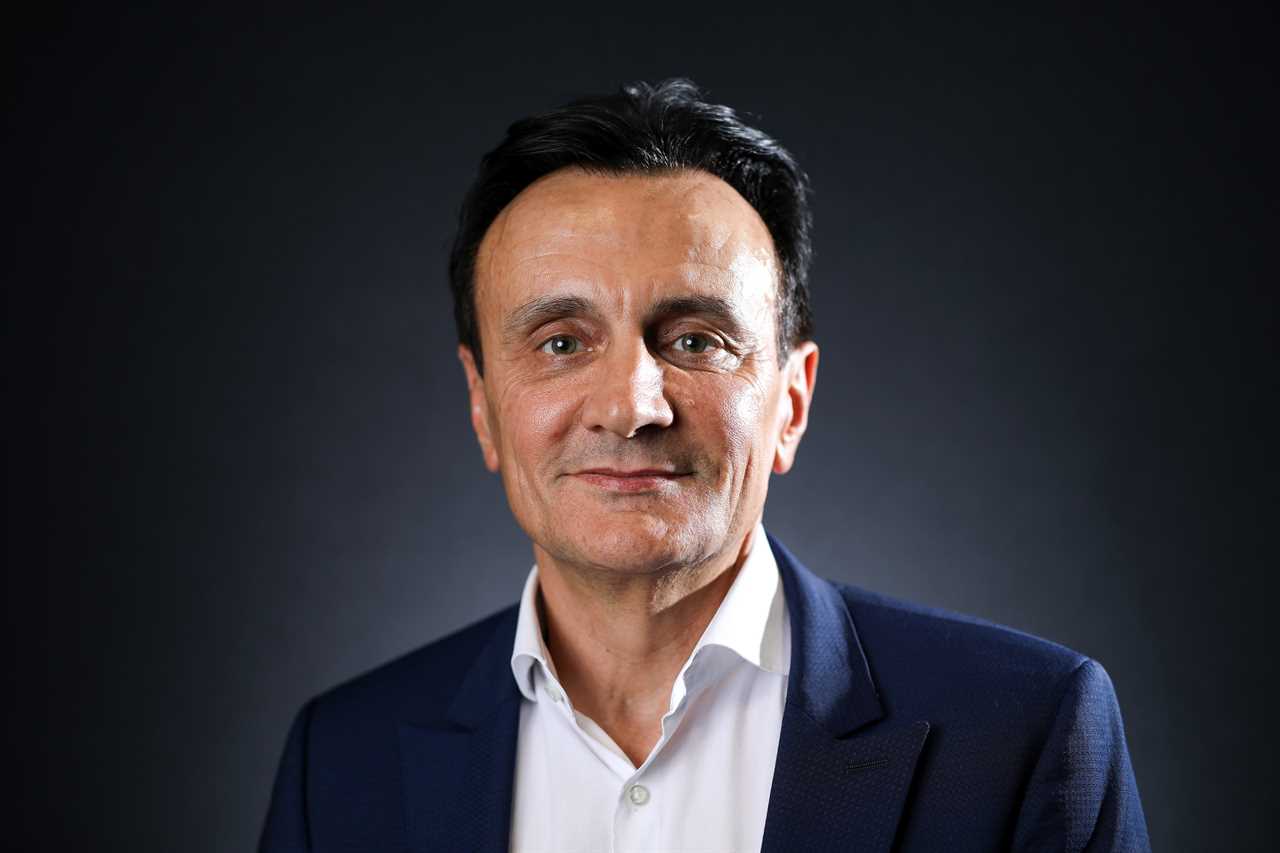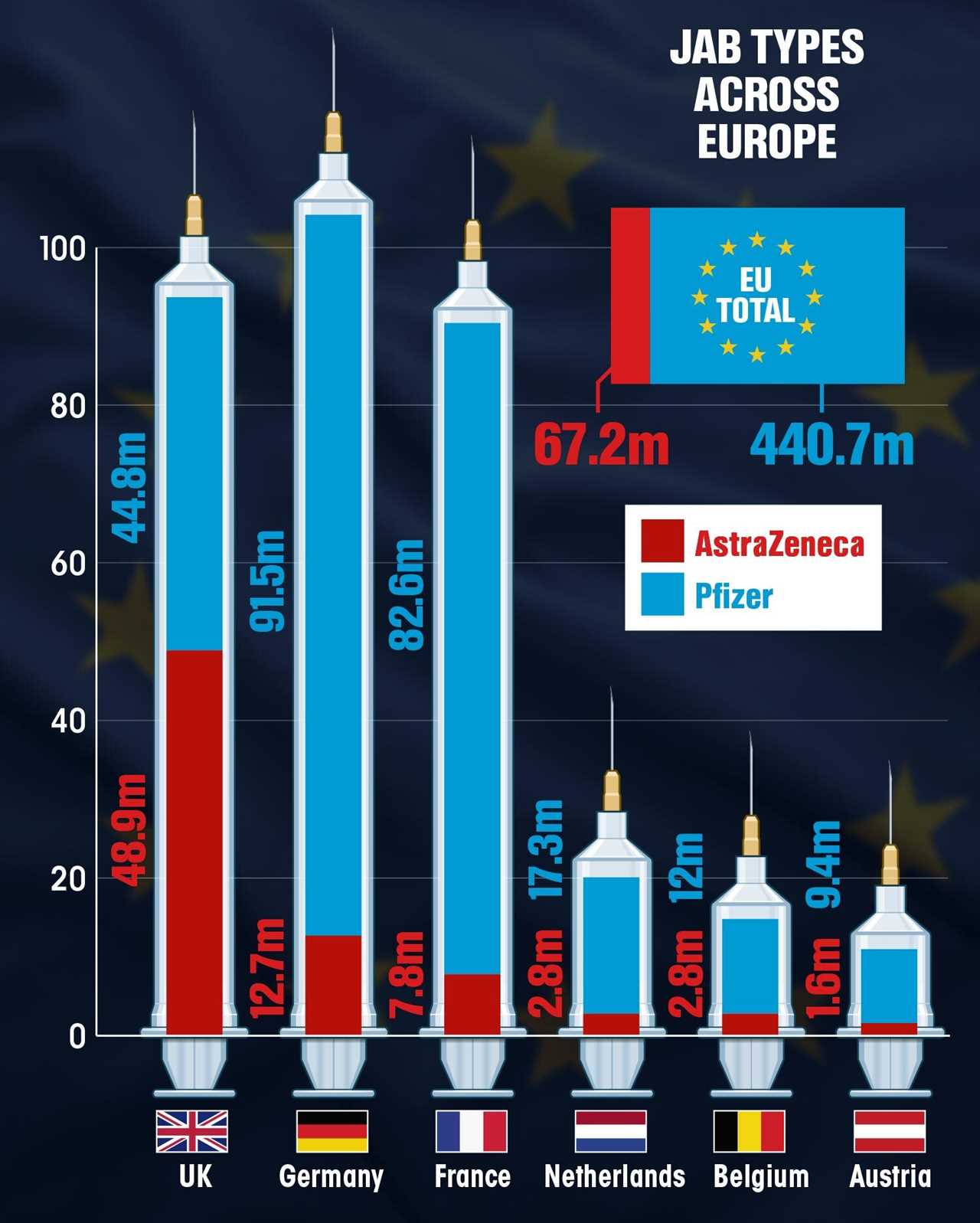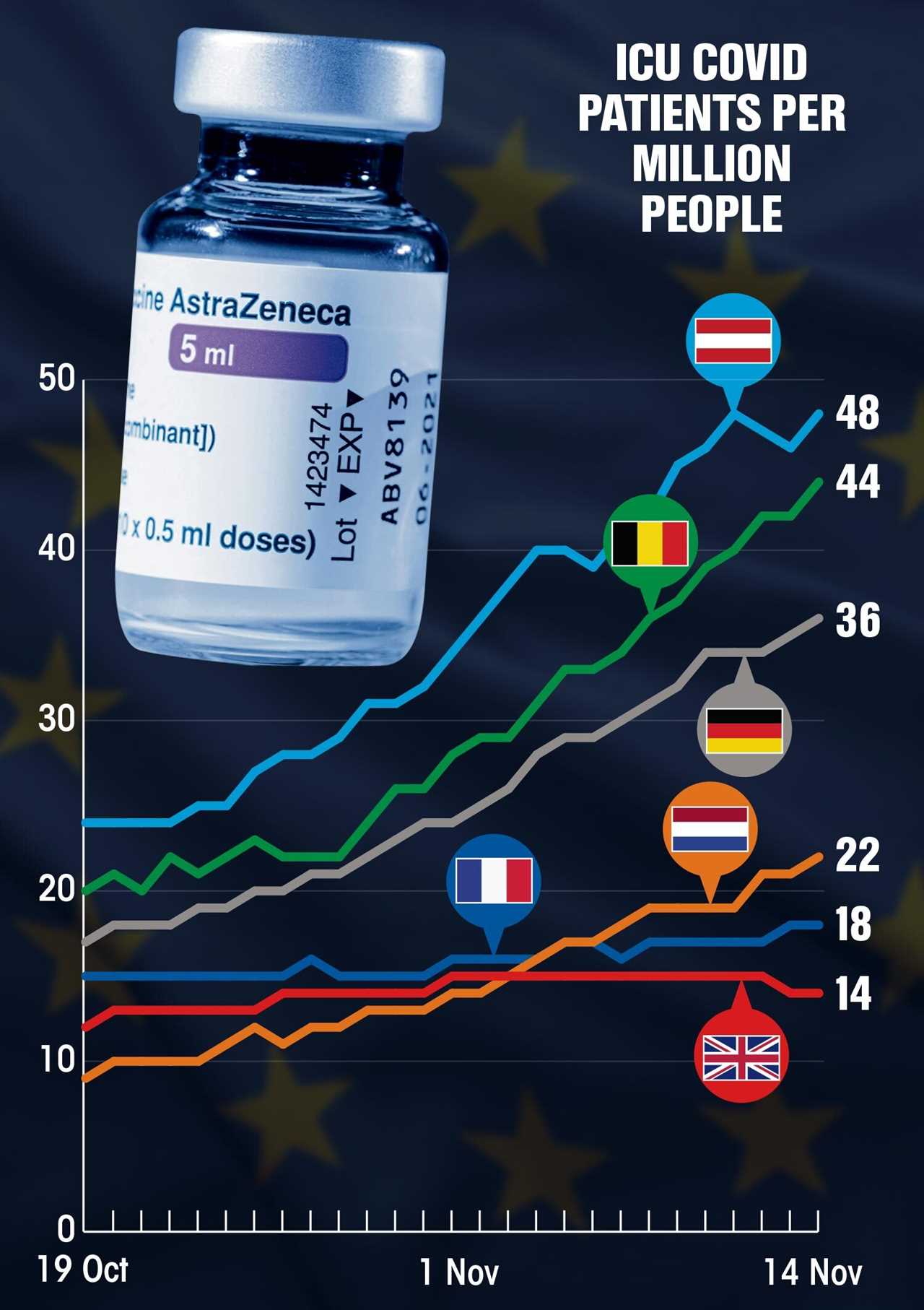EUROPE is battling a blazing Covid outbreak again because it shunned the AstraZeneca jab, the vaccine-maker claims.
CEO Pascal Soriot said the company’s vaccine gives deeper, longer-lasting protection than those by Pfizer and Moderna.


He claimed it gives a bigger boost to T cell immunity, training white blood cells to seek out and destroy cells infected with Covid, instead of looking for the virus itself like antibodies do.
EU leaders last year launched a campaign of misinformation about the safety of the Oxford/AstraZeneca jab — and handed out tens of millions of Pfizer vaccines instead.
But now infection rates are soaring on the Continent and some countries’ intensive care figures are more than triple that of the UK.
Yesterday, as he opened his company’s £1billion research centre in Cambridge, Mr Soriot suggested Britain is set to escape the clutches of the pandemic more quickly because of the success of his jab.
He said: “In the UK there was a big peak of infections, but not so many hospitalisations relative to Europe.
“And in the UK this vaccine was used to vaccinate older people, whereas in Europe, initially, people thought the vaccine doesn’t work in older people.
“The antibody response drives the immediate defence of the body when you’re attacked by the virus.
“The T cell response takes a little longer to come in but it’s more durable, it lasts longer. And the body remembers that longer.”
Around 25million Brits have had the AstraZeneca vaccine — 51 per cent of all those who are jabbed.
But it has only been given to around 11 per cent of people in the EU, with just 67million doses used compared to 441million of Pfizer’s vaccine.
In France, just eight per cent of the doses delivered have been the Oxford jab, along with 11 per cent in Germany, 16 per cent in Belgium, 13 per cent in Austria and 12 per cent in the Netherlands.
Those countries are now being rattled by rebounding case rates and have three times as many Covid patients in intensive care.
ICU cases doubled in the past month in Austria, Belgium, Germany, and the Netherlands — but rose only 17 per cent in the UK.
And with 48 patients per million people in Austria and 44 per million in Germany, their rates are triple the 14 per million in the UK, according to Our World in Data.

There are 928 people on ventilators in the UK out of 8,088 people in hospital, with the total patient number falling by 900 in a fortnight.
Another 42,484 cases were announced yesterday, up 14 per cent on last week, as well as 165 deaths.
Experts say antibody protection — higher from the Pfizer vaccine — wearing off is a key reason for the resurgence.
And there are signs the long-term T cell response is weaker than it is with the AstraZeneca jab.
Professor Eleanor Riley, immunology and infectious disease expert at Edinburgh University, said: “It seems the Oxford AZ vaccine initially induces higher levels of T cells than the mRNA vaccines.
“These T cells are important for long-term immune memory and also for inhibiting virus replication and killing infected cells once an infection becomes established.
“T cells are therefore assumed to contribute to long-term protection against severe Covid-19.
“Since the AZ vaccine is slightly better at inducing these T cells, the implication is that it may provide longer-term protection against hospitalisation and death.”
RATTLED BY CASES
The twist of fate comes after France and other EU nations spent early 2021 sniping about the Oxford/AstraZeneca jab’s effectiveness — despite their lagging rollouts.
French President Emmanuel Macron wrongly warned the vaccine was “quasi-ineffective” in older people, just hours before the EU regulator approved it for use in all adults.
He also sniped that Britain had taken a risk by authorising the AZ shot so soon.
EU boss Ursula von der Leyen made a similar accusation, saying the UK had cut corners in its approval of the jab.
In March, 20 EU nations — including France and Germany — sensationally defied medical advice and halted the Oxford/AZ vaccine’s rollout over blood-clot fears.
Although a link to the very rare side-effect was established, the benefits of the jab vastly outweigh the risk in older people.
UK Health Security Agency figures show the jab gives up to 99 per cent protection against hospital admission and 75 per cent against illness, although these figures fall over time.
Brit experts say that, although the vaccine is clearly protecting us from serious disease, it may not be the only reason the UK is faring better than its neighbours.

Professor Jonathan Ball, a virologist at Nottingham University, said: “I think the real reason we are seeing stable case numbers in the UK and escalating numbers in many parts of the EU is more to do with levels of population immunity.
“In the UK we have been seeing high virus circulation when we came out of lockdown in summer, and that has generated relatively high levels of immunity in younger people.
“Most older people have gained immunity from vaccination. That was not the case in some EU countries.
“This means our population is generally less susceptible to infection and serious disease.”
The World Health Organization has warned that Europe’s latest Covid wave could send the death toll from its current 1.5million to as high as 2.2million by the spring.
The continent is in the “firm grip” of the virus once again and daily deaths have doubled since September to 4,200, it said.
Dr Hans Kluge, European chief at the WHO, warned people to stick to social distancing to avoid lockdowns.
He said: “To live with this virus and continue our daily lives, we need to take a ‘vaccine plus’ approach.
‘POSITIVE IMPACT’
“This means getting the standard doses of vaccine, a booster if offered, as well as incorporating preventive measures — wearing a mask, washing hands, ventilating indoor spaces and keeping physical distance.”
Austria is back in lockdown, with other countries considering similar measures.
French minister Véronique Trillet-Lenoir said: “We have to think about reinforcing precautionary measures. We should do that in a coordinated way across the EU.”
Mr Soriot’s comments came as he welcomed Prince Charles to open AstraZeneca’s new lab.
Since the pandemic began, the firm has produced two billion doses of its Covid vaccine and delivered them to more than 170 countries.
The Prince of Wales said: “Throughout the pandemic I have greatly admired the dedicated commitment of the entire AstraZeneca team.
“You have developed and delivered a vaccine for the world — in a remarkably short timescale — which will continue to have a positive impact on communities and society for years to come.”







